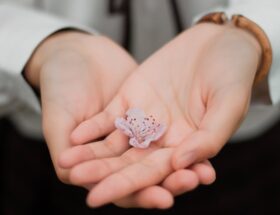Imagine waking up to the sound of waves gently lapping against the shore, the scent of saltwater filling the air, and the sun casting a golden hue over your own personal paradise. No noisy neighbors, no hustle and bustle—just you, nature, and endless possibilities. This dream could become a reality if you bought a private island. But before you can start your new life, there are some essentials you’ll need to bring with you to ensure you’re truly self-sufficient on your island getaway.
1. Sustainable Energy Solutions
One of the first things to consider is how you’ll power your island. Since you’ll likely be off the grid, traditional electricity may not be an option. Solar panels are a must-have for harnessing the abundant sunlight, especially if your island is in a tropical or subtropical region. Wind turbines can also be a great supplementary source of energy if your island experiences regular breezes. Both options can provide you with enough power to run your essential appliances, tools, and devices.
Pro Tip: Invest in a backup generator for those cloudy days or periods of low wind. A small, efficient generator that runs on biofuel or diesel can be a lifesaver.
2. Fresh Water Supply
Water is the essence of life, and on a remote island, ensuring a steady supply of fresh water is crucial. Depending on your island’s geography, there may be natural springs or a freshwater source, but it’s wise to have backup options.
Desalination systems can convert seawater into drinkable water, and rainwater harvesting systems can collect and store water during wet seasons. You’ll need a reliable filtration system to ensure the water you collect is safe for drinking, cooking, and bathing.
Pro Tip: Build large storage tanks or cisterns to store water during periods of abundance. This way, you’ll have plenty to rely on during dry spells.

3. Food Production and Storage
To be truly self-sufficient, you’ll need to produce your own food. Start by setting up a garden where you can grow a variety of fruits, vegetables, and herbs. Choose crops that are well-suited to your island’s climate and soil conditions. For protein, consider raising chickens for eggs and meat, and if space allows, goats for milk and cheese. If your island has the right conditions, you might even be able to establish a small aquaculture setup for fish.
Pro Tip: Learn about permaculture techniques, which are designed to work with nature to create sustainable food systems. This can help you create a thriving garden with minimal effort.
4. Shelter and Infrastructure
While the idea of living in a hammock under the stars is romantic, you’ll need a solid, weather-resistant shelter. Consider building a small, eco-friendly home using local materials like wood, bamboo, or stone. Your home should be sturdy enough to withstand storms and insulated to keep you comfortable in different weather conditions.
You’ll also need to think about infrastructure for your island. Paths, docks, and possibly a small boathouse or storage shed are all important. These can be constructed over time, but a basic plan should be in place before you move in.
Pro Tip: Make use of natural resources and the island’s geography when designing your home and infrastructure. For instance, building on higher ground can protect you from flooding, while positioning your home to catch the breeze can reduce your need for air conditioning.
5. Communication and Navigation Tools
Being isolated on an island means you’ll need reliable communication tools. A satellite phone is essential for emergencies, as it allows you to stay in contact with the outside world even if other forms of communication fail. A VHF radio can also be useful, especially if you plan to have a boat or need to communicate with passing ships.
For navigation, a GPS device is indispensable, especially if you plan to explore nearby islands or the surrounding waters. A high-quality map and compass can also be valuable tools for orienting yourself and marking important locations on your island.
Pro Tip: Set up a solar-powered charging station to keep all your devices, including your satellite phone and GPS, fully charged and ready to use.

6. Medical Supplies and First Aid
Access to medical care can be limited on a private island, so it’s important to be prepared for any health issues that might arise. Stock up on essential medications, first aid supplies, and any prescription drugs you may need. A well-equipped first aid kit should include bandages, antiseptics, pain relievers, and tools like tweezers, scissors, and a thermometer.
Consider taking a first aid course before you move to the island, so you’re prepared to handle common injuries and illnesses. In more serious situations, knowing how to stabilize a patient until help arrives could be lifesaving.
Pro Tip: Keep a detailed medical guidebook on hand. It can be an invaluable resource for diagnosing and treating ailments in a remote setting.
7. Tools and Equipment
Finally, you’ll need a variety of tools and equipment to maintain your island and keep everything running smoothly. Basic hand tools like hammers, saws, screwdrivers, and wrenches are essential. You’ll also need gardening tools, fishing gear, and possibly some power tools if you plan to build or repair structures.
Don’t forget about transportation. Depending on the size of your island, a small boat, kayak, or even a bike can be useful for getting around and exploring. If your island is large or has rugged terrain, an ATV might be worth considering.
Pro Tip: Choose high-quality, durable tools that are built to last. In a remote location, it’s better to invest in reliable equipment than to face the challenge of replacing broken tools.

Final Thoughts
Starting a new life on a private island is the ultimate adventure, but it requires careful planning and preparation. By ensuring you have sustainable energy, a reliable water source, food production capabilities, solid infrastructure, communication tools, medical supplies, and the right equipment, you can create a self-sufficient paradise where you’re free to live life on your own terms. So, what are you waiting for? Your island awaits!
I hope this post inspires you to dream big and prepare thoroughly for your island adventure. Whether you’re planning your own escape or just daydreaming, may your journey toward self-sufficiency be as fulfilling as the destination.
Happy island dreaming,
GertieBlu 🌊









